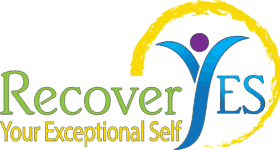Frequently Asked Questions
FAQ
Recovery
Many people ask this question when they first come to us. The technical definition of an addict is – a person who must take a substance or exhibit a behavior that is compulsive, progressive, causes withdrawal symptoms when trying to stop, and results in negative consequences. We believe that addiction isn’t a “yes or no” answer. Rather, it lies on a scale of behavior. You can take our online assessment that will give you some indication if you have a problem and may be an addict. While you may not exhibit all of the symptoms, you may be on your way. Our hope is that you do not have to reach the level of full-blown addiction (with the dire consequences that usually accompany it) to decide that you need to make a change.
Please click here if this helped you.
0 people found this helpful.
Co-addict is another term for codependent. It was first described as the partner of an alcoholic or addict. Recently, we have realized that the co-addict develops their codependence and their addictions the same way that addicts do. The only difference is that a co-addict may not have developed secondary physical addictions such as alcoholism, drugs, sex, etc. Our experience is that co-addiction is one of the most challenging forms of addiction to recovery from…and is often accompanied by extreme denial. The co-addict believes that the problem is with the addict and their job is to fix him/her.
Please click here if this helped you.
0 people found this helpful.
Long-term recovery is possible with willingness, the right tools, information and help. There is no one right way to recover and whatever works for you is OK. That is why RecoverYES approaches recovery from many different angles so that you can find the approach that works the best for you.
Sobriety is only the first step to recovery- full recovery involves healing in all areas of life. We believe that your recovery can be easy and fun, but that it also can be hard and challenging. We believe that many people can get sober by themselves, but that full recovery often requires outside help. For those on the high end of the addiction scale, recovery almost always requires help; just as someone with mild heart disease can usually recover by making lifestyle changes on their own, while someone with advanced heart disease may require surgery, medication, physical therapy, etc.
Please click here if this helped you.
0 people found this helpful.
We hear the stories every day. Even those with long-term recovery go through a trying time and relapse. In most cases, “life” has thrown situations at them that their recovery tools were not sharp enough to handle. Resilient recovery implies that the possibility of relapse is made much less likely with tools that are ever sharp and readily at hand.
Please click here if this helped you.
0 people found this helpful.
That’s a great question! We discuss it at length in most of our programs. Our book is available at Amazon. It’s a great way to get started. To get your copy of it click on this link: Insider’s Guide to Addiction Treatment: Keys to Recover from Any Addiction
Please click here if this helped you.
0 people found this helpful.
